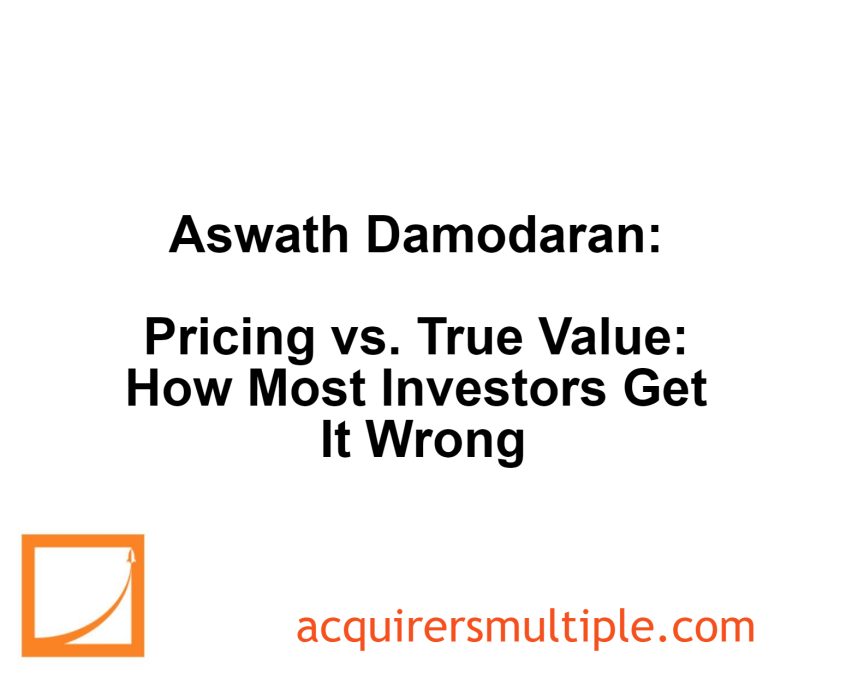During his recent interview with Equity Mates, Aswath Damodaran explained that most people rely on pricing, when it comes to valuing businesses, which is simpler but might not reflect the true value of a business. Intrinsic valuation demands more effort but offers a deeper understanding of an asset’s worth. Put simply:
-
Pricing: People generally base their decisions on what others are doing. This applies to buying a house, choosing a restaurant, or even picking a movie. It’s essentially trusting the “crowd” to determine value
-
Intrinsic Valuation: This approach focuses on the underlying fundamentals of an asset, like a business. Here, the value is determined by analyzing factors like cash flow, growth potential, and risk. This method requires in-depth understanding of the specific business
Here’s an excerpt from the interview:
I ask people to think about how much they pay for a apartment, or a house they’ve bought recently.
And for many Americans that’s getting out of reach, but when you think about how much you pay for a house or apartment you don’t do an intrinsic valuation, you basically decide how much to pay based on what other people are paying for similar houses.
That’s pricing.
You’re essentially looking at what other people are paying and in a way most of our lives is spent by looking at what crowds do.
I mean I don’t know about you but I decide what to watch on Netflix by checking out Rotten Tomatoes. I decide where to eat by checking out Yelp. Think of markets as essentially the crowd judgment, and what companies are worth.
And you try to use that crowd judgment, and that’s what pricing does. You’re trusting the crowd on average to get it right.
You’re saying individually crowds might make mistakes on companies, but collectively they’re usually right.
In valuation you approach it differently. Don’t think about buying something because everybody else is buying it. You buy it because you’re interested in it as a business.
You’re buying it as a business, and when you buy it as a business I don’t care what other people think about your business. That it’s glorious, or awful.
Ultimately it’s cash in cash out. You can’t get away from that.
So when you think about an asset as a business, you got to understand the business. You have to understand what drives its growth and its profitability and its risk and bring them all into an assessment of value.
Now we might call this a discounted cash flow valuation, but remember valuation predates discounted cash flow valuation.
Discounted cash flow valuation is a tool that has been developed primarily in the last 87 years, 1937 John Williams book is the first one one that described the mechanics of discounted cash flow valuation.
But I think of intrinsic valuation as predating discounted cash flow valuation.
That Venetian glass maker in the 1500s who decided how much to pay for a business based on cash flows, growth, and risk.
It’s as old as time, but it is more work because you have to understand the business to be able to value it.
So given a choice in valuing something and pricing something most people, including most people who claim to do the valuation. are really doing pricing.
You can watch the entire discussion here:
For all the latest news and podcasts, join our free newsletter here.
Don’t forget to check out our FREE Large Cap 1000 – Stock Screener, here at The Acquirer’s Multiple:



